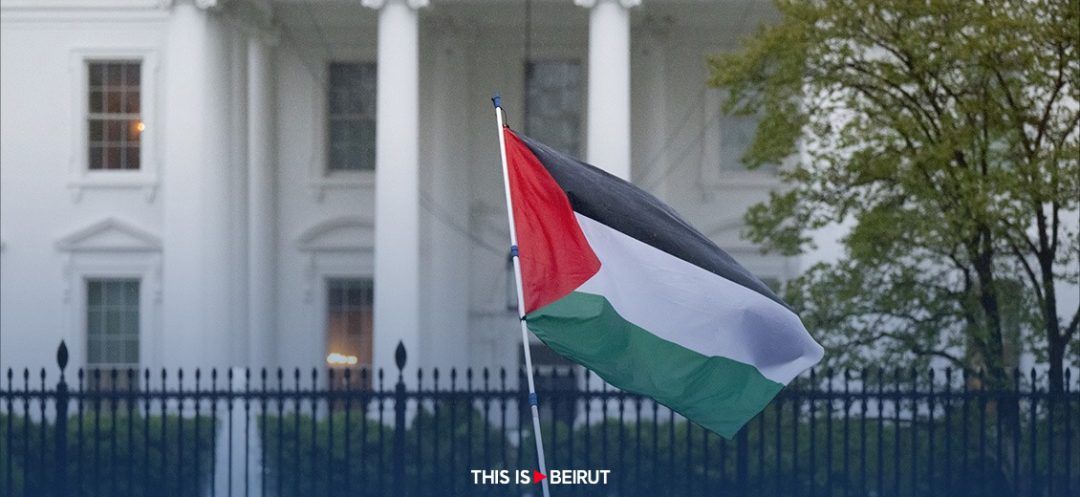- Home
- War in the Middle East
- Will the UN Ultimately Recognize Palestine?

On Tuesday, April 2, the Palestinians renewed their demand to join the United Nations. In a letter addressed to UN Secretary-General António Guterres, Palestinian Ambassador to the UN Riyad Mansour renewed a longstanding petition dating back to 2011.
"We hope that the Security Council, convening at the ministerial level on April 18, will take decisive actions," asserted Riyad Mansour on Wednesday, April 3, hinting at an upcoming session focused on the situation in Gaza.
"We want this admission. It’s our legitimate and legal right," he added, asserting that given the number of supporting countries, this membership should be "easy."
"Everybody is exploring the two-state solution. In that case, what is the rationale behind stopping us from becoming a member state?" he asked, in response to the possibility of a US veto on this issue.
This petition arises amidst the backdrop of heightened tensions following the Hamas attack on October 7, which triggered a disproportionate Israeli response, leading to the loss of countless civilians in Gaza.
A Specific Procedure
The process of admitting a new state to the UN is "both simple and complicated," explains Romuald Sciora, Director of the United States Political and Geostrategic Observatory at IRIS, speaking to This Is Beirut. "To seek recognition from the UN, the entity should boast the resources that are proper to a State."
The request is sent to the UN Secretary-General, who then forwards it to the Security Council. The Council must then decide whether it can submit the entity's request to the UN General Assembly. "This is where the problem lies," explains Sciora, "as the Security Council will most likely reject the request due to a US veto. Therefore, the request is unlikely to progress, despite potential support from the UN General Assembly for recognizing the Palestinian state."
In September 2011, the President of the Palestinian Authority, Mahmoud Abbas, initiated a procedure to secure Palestine's membership to the UN. However, this procedure did not materialize. Yet through persistent diplomatic efforts, Palestinians earned the status of a non-member observer state at the United Nations in 2012, granting them access to UN agencies and international treaties.
In 2015, they joined the International Criminal Court (ICC), allowing for investigations into a few Israeli operations in Palestinian territories. In 2011, they were also allowed as members of UNESCO, a decision that sparked outrage from both Americans and Israelis.
Major Changes?
In fact, 140 out of the 193 UN member states have unilaterally recognized the State of Palestine. Consequently, Palestinians enjoy broad international recognition. However, most Western countries, including the United States, the United Kingdom and France, do not acknowledge the Palestinian state.
Aside from being able to speak out and vote at the UN, membership of the Palestinian state in the organization "would be a major game changer for Palestine," analyzes Romuald Sciora. "Palestine would have all the rights of a state within international organizations and among other states overall, thus Israeli occupation would constitute a violation of a sovereign territory." This would definitively establish the illegality of Israel's occupation of Palestinian territories.
A recognition of their state would also facilitate economic growth and grant access to financial loans and to international organizations such as the World Trade Organization (WTO). "This would also be a highly symbolic act, marking the acknowledgment of a struggle spanning nearly 80 years," adds Romuald Sciora.
As the situation in Gaza worsens, the renewal of the Palestinian petition to the UN is quite significant. Undeniably, the Palestinian cause has resurfaced after years of being sidelined.
"This is the right time to revive the initiative," Sciora says. "Even though we expect it to fail, nevertheless it remains extremely symbolic. The international community finds itself closer than ever to recognize a Palestinian state. Surely, the mounting civilian casualties among Palestinians has swayed international opinion, initially shocked by the Hamas attack on October 7. Prime Minister Netanyahu's hardline strategy is encountering growing resistance from the international community."
Several European countries, including Spain and France, are pondering the possibility of recognizing a Palestinian state. Spanish Prime Minister Pedro Sánchez recently expressed his determination to accelerate the process, aiming for Spain's recognition of a Palestinian state by summer.
Additionally, Ireland, Malta and Slovenia announced at the end of March their readiness to recognize Palestine "if the circumstances are favorable." Since early April, France has been advocating for a resolution at the UN Security Council with the aim of revitalizing the two-state solution.
However, without American endorsement, the initiative for a Palestinian state could fail to materialize. Furthermore, international developments could significantly impact the overall situation. "Unfortunately, I fear that a potential conflict between Israel and Iran, if it were to escalate into direct confrontation, would lead the United States to align with Israel, thereby sidelining the Palestinian cause," confirms Romuald Sciora. As their land continues to be occupied year after year, Palestinians are determined not to sink into oblivion.
"We hope that the Security Council, convening at the ministerial level on April 18, will take decisive actions," asserted Riyad Mansour on Wednesday, April 3, hinting at an upcoming session focused on the situation in Gaza.
"We want this admission. It’s our legitimate and legal right," he added, asserting that given the number of supporting countries, this membership should be "easy."
"Everybody is exploring the two-state solution. In that case, what is the rationale behind stopping us from becoming a member state?" he asked, in response to the possibility of a US veto on this issue.
This petition arises amidst the backdrop of heightened tensions following the Hamas attack on October 7, which triggered a disproportionate Israeli response, leading to the loss of countless civilians in Gaza.
A Specific Procedure
The process of admitting a new state to the UN is "both simple and complicated," explains Romuald Sciora, Director of the United States Political and Geostrategic Observatory at IRIS, speaking to This Is Beirut. "To seek recognition from the UN, the entity should boast the resources that are proper to a State."
The request is sent to the UN Secretary-General, who then forwards it to the Security Council. The Council must then decide whether it can submit the entity's request to the UN General Assembly. "This is where the problem lies," explains Sciora, "as the Security Council will most likely reject the request due to a US veto. Therefore, the request is unlikely to progress, despite potential support from the UN General Assembly for recognizing the Palestinian state."
In September 2011, the President of the Palestinian Authority, Mahmoud Abbas, initiated a procedure to secure Palestine's membership to the UN. However, this procedure did not materialize. Yet through persistent diplomatic efforts, Palestinians earned the status of a non-member observer state at the United Nations in 2012, granting them access to UN agencies and international treaties.
In 2015, they joined the International Criminal Court (ICC), allowing for investigations into a few Israeli operations in Palestinian territories. In 2011, they were also allowed as members of UNESCO, a decision that sparked outrage from both Americans and Israelis.
Major Changes?
In fact, 140 out of the 193 UN member states have unilaterally recognized the State of Palestine. Consequently, Palestinians enjoy broad international recognition. However, most Western countries, including the United States, the United Kingdom and France, do not acknowledge the Palestinian state.
Aside from being able to speak out and vote at the UN, membership of the Palestinian state in the organization "would be a major game changer for Palestine," analyzes Romuald Sciora. "Palestine would have all the rights of a state within international organizations and among other states overall, thus Israeli occupation would constitute a violation of a sovereign territory." This would definitively establish the illegality of Israel's occupation of Palestinian territories.
A recognition of their state would also facilitate economic growth and grant access to financial loans and to international organizations such as the World Trade Organization (WTO). "This would also be a highly symbolic act, marking the acknowledgment of a struggle spanning nearly 80 years," adds Romuald Sciora.
As the situation in Gaza worsens, the renewal of the Palestinian petition to the UN is quite significant. Undeniably, the Palestinian cause has resurfaced after years of being sidelined.
"This is the right time to revive the initiative," Sciora says. "Even though we expect it to fail, nevertheless it remains extremely symbolic. The international community finds itself closer than ever to recognize a Palestinian state. Surely, the mounting civilian casualties among Palestinians has swayed international opinion, initially shocked by the Hamas attack on October 7. Prime Minister Netanyahu's hardline strategy is encountering growing resistance from the international community."
Several European countries, including Spain and France, are pondering the possibility of recognizing a Palestinian state. Spanish Prime Minister Pedro Sánchez recently expressed his determination to accelerate the process, aiming for Spain's recognition of a Palestinian state by summer.
Additionally, Ireland, Malta and Slovenia announced at the end of March their readiness to recognize Palestine "if the circumstances are favorable." Since early April, France has been advocating for a resolution at the UN Security Council with the aim of revitalizing the two-state solution.
However, without American endorsement, the initiative for a Palestinian state could fail to materialize. Furthermore, international developments could significantly impact the overall situation. "Unfortunately, I fear that a potential conflict between Israel and Iran, if it were to escalate into direct confrontation, would lead the United States to align with Israel, thereby sidelining the Palestinian cause," confirms Romuald Sciora. As their land continues to be occupied year after year, Palestinians are determined not to sink into oblivion.
Read more



Comments